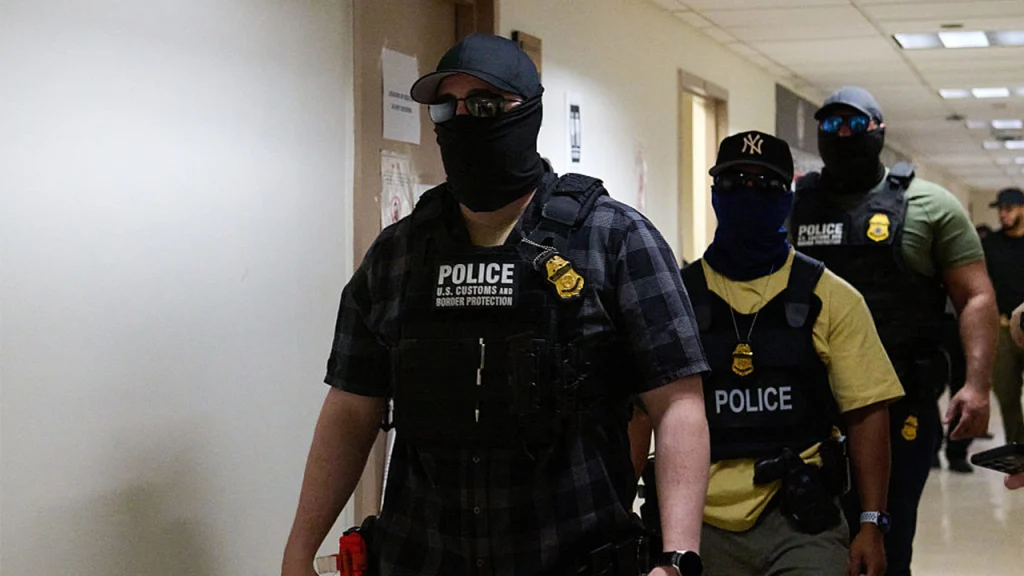Federal Challenge to California’s Law on Law Enforcement Masks
In a significant clash between federal and state authority, the Trump administration has filed a lawsuit challenging California’s recently enacted laws prohibiting law enforcement officers, including federal agents, from wearing masks that conceal their identities. The legal challenge centers on the No Secret Police Act and No Vigilantes Act, both signed into law by Governor Gavin Newsom in September. These controversial measures require most law enforcement personnel to show their faces while on duty, with limited exceptions for undercover operations, medical masks like N95 respirators, or as part of tactical gear. The lawsuit reflects the ongoing tension between federal immigration enforcement priorities and California’s stance on protecting immigrant communities, with both sides claiming they’re defending important principles.
The federal government’s legal argument primarily rests on the Supremacy Clause of the U.S. Constitution, which establishes that federal law takes precedence over state law when conflicts arise. The lawsuit contends that California lacks the authority to impose restrictions on federal agents performing their duties. Additionally, the administration cites Article 5, Section 301 of the U.S. Code, which grants agency heads the authority to regulate their departments and employees’ conduct. Attorney General Pam Bondi has characterized the California laws as discriminatory against the federal government and designed to create risks for federal agents. In response to the law’s passage, Department of Homeland Security officials had already directed Immigration and Customs Enforcement (ICE) agents to disregard the California regulations, setting up this constitutional confrontation.
The context for this legal battle emerged from recent immigration enforcement actions in Southern California. Since June, federal agents have conducted raids targeting migrant workers at local businesses, operations that sparked protests and led to the deployment of the National Guard and Marines. During these raids, some federal agents reportedly wore masks to conceal their identities, a practice that California lawmakers aimed to prohibit with the new legislation. Governor Newsom has framed the issue as one of accountability, stating that federal immigration officers would no longer be “hidden from accountability” while operating in California. “That’s not the America we’ve grown up in. And so we are pushing back,” Newsom declared when signing the bills, positioning California as a defender of transparency in law enforcement.
The federal lawsuit goes beyond constitutional arguments to emphasize practical concerns, claiming that California’s mask prohibition “would recklessly endanger the lives of federal agents and their family members and compromise the operational effectiveness of federal law enforcement activities.” This safety argument has been a central theme in the Department of Homeland Security’s response, with the agency pointing to increased threats against ICE officers as justification for allowing face coverings. The administration has requested that the court issue a preliminary injunction to block California from enforcing the laws while the case proceeds, underscoring the perceived urgency of the matter. This reflects a broader concern that operational capabilities could be compromised if federal agents are required to reveal their identities during enforcement actions.
On the other side, supporters of California’s new laws argue that the use of masks by immigration agents creates fear among communities and undermines public trust in law enforcement. The legislation represents California’s latest effort to assert state authority over how federal immigration enforcement is conducted within its borders, continuing a pattern of resistance to certain federal immigration policies. Governor Newsom’s office has responded defiantly to the lawsuit, stating that California officials “will see the [DOJ] in court.” A spokesperson for the governor added a pointed critique: “If the Trump administration cared half as much about public safety as it does about pardoning cop-beaters, violating people’s rights, and detaining U.S. citizens and their kids, our communities would be much safer,” referencing President Trump’s pardons of January 6 Capitol riot participants.
This legal confrontation highlights fundamental questions about federalism, law enforcement accountability, and immigration policy in America. The outcome could have far-reaching implications for the relationship between federal and state governments, particularly regarding immigration enforcement operations. For California, the laws represent an attempt to ensure transparency and accountability in all law enforcement actions within the state. For the federal government, the challenge aims to preserve operational discretion and protect the safety of agents conducting immigration enforcement. As the case moves through the courts, it will likely become a flashpoint in the ongoing national debate about immigration policy, federal authority, and states’ rights to regulate law enforcement practices within their borders. Regardless of the outcome, this case illustrates the complex and often contentious dynamics of American federalism when national and state priorities collide.


